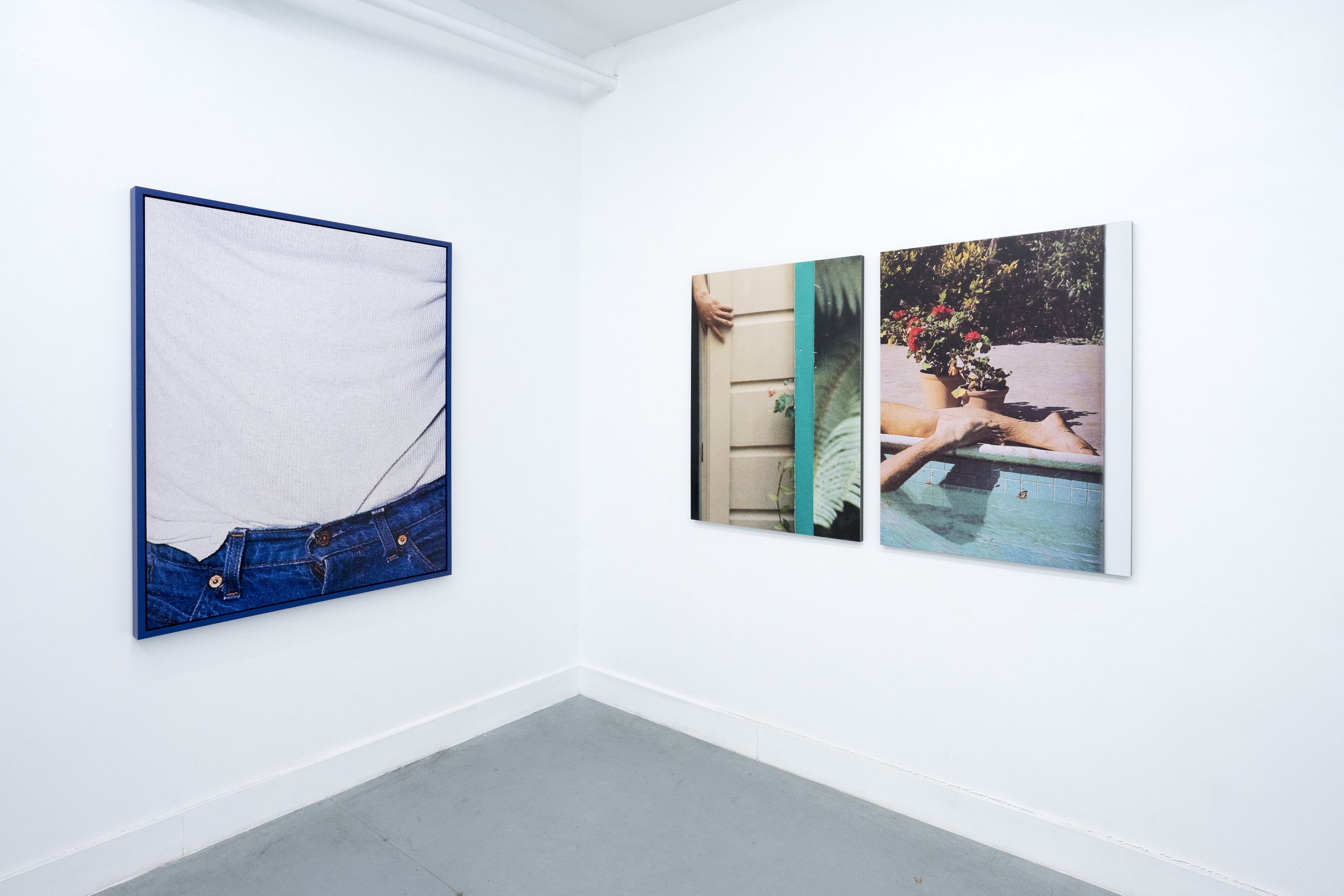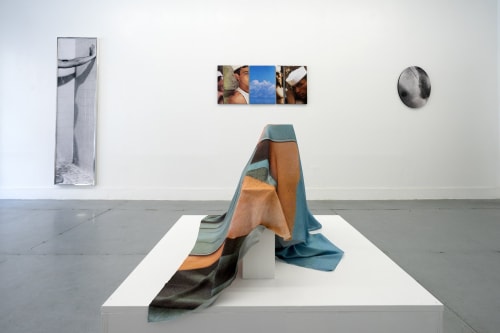This is what we see: sweat, desert, automobiles, men’s fashion, men’s bodies, and blue jeans. But this is not what Pacifico Silano wants us to notice in his solo exhibit If You Gotta Hurt Somebody, Please Hurt Me. Instead, the reconstructed photographs from the 1970s and 80s become an iconic part of what Silano is turning a critical gaze towards: toxic masculinity and its intersection with white queer desire.

Courtesy of Rubber Factory NYC © Pacifico Solano
The photos, which are reflections of the time they were taken, are celebrations of the ultra-masculine, which, through the eyes of the modern viewer, become a fetishization of power and pain. He achieves this through his innovation of format: the archive he takes from doesn’t remain in its original form. It changes, just as our view of it changes with the passage of time. The exhibit is erotic and masochistic, which Silano examines through a critical lens as he connects this dominating class of masculinity with the current experience of white, queer America. Violence is sensual; as is embracing the toxic masculinity represented by the automobiles, dog tags, lifted shirts, and other images shown by Silano.

Courtesy of Rubber Factory NYC © Pacifico Solano
Silano’s work also presents another question to us: how does the past change under the gaze of the present? In this exhibition, the past has grown tiresome. No longer are many willing to condone or welcome the masculinity and sinister nature presented in If You Gotta Hurt Somebody, Please Hurt Me. However, this isn’t Silano’s first time reconstructing photography from another time. In his series John John, he contrasts the known life with the possible private life of former President JFK; In I Won’t Last A Day Without You, Silanobalances romance and love with the heaviness of the AIDS epidemic, utilizing images from gay erotic magazines. Silano constantly reintroduces viewers to the past, especially the past of queer America, and discovers contemporary meaning within it. As he states in an interview with Out Magazine, “I’m really interested in the infinite life of a photograph, how its meaning is not fixed but constantly in flux.”

Courtesy of Rubber Factory NYC
In If You Gotta Hurt Somebody, Please Hurt Me, the violently masculine imagery of the past collides with the present reality of white queer desire that Silano shows as having drawn from this same sense of violence and power, making us ask the question: what else from the past is coming back to bite us?

